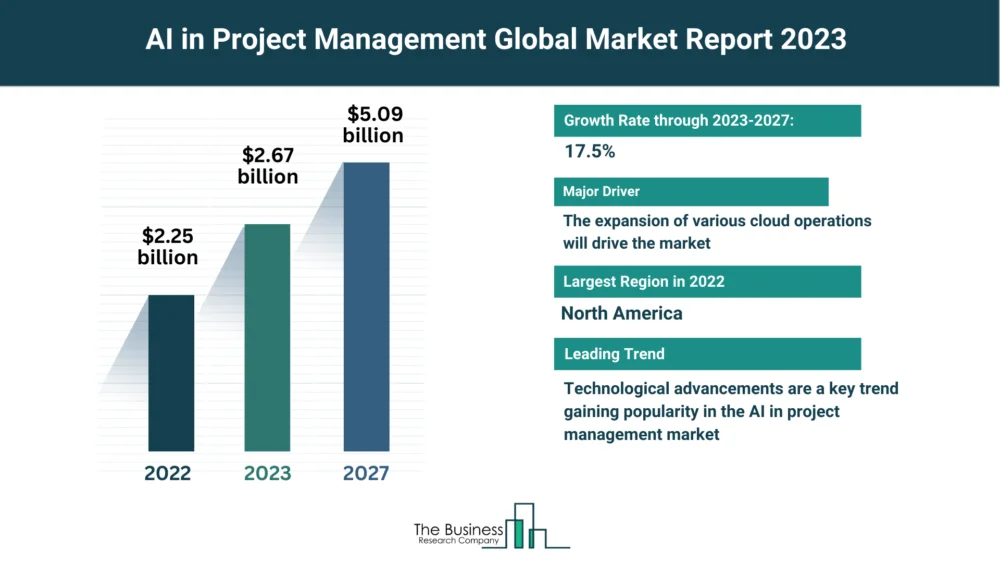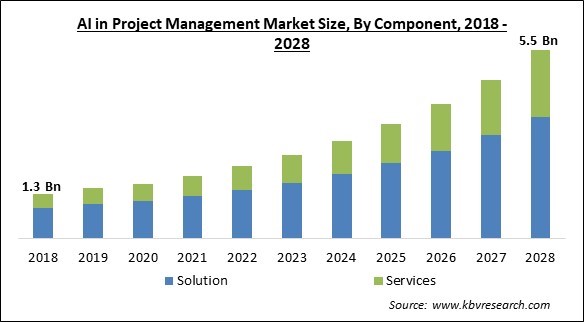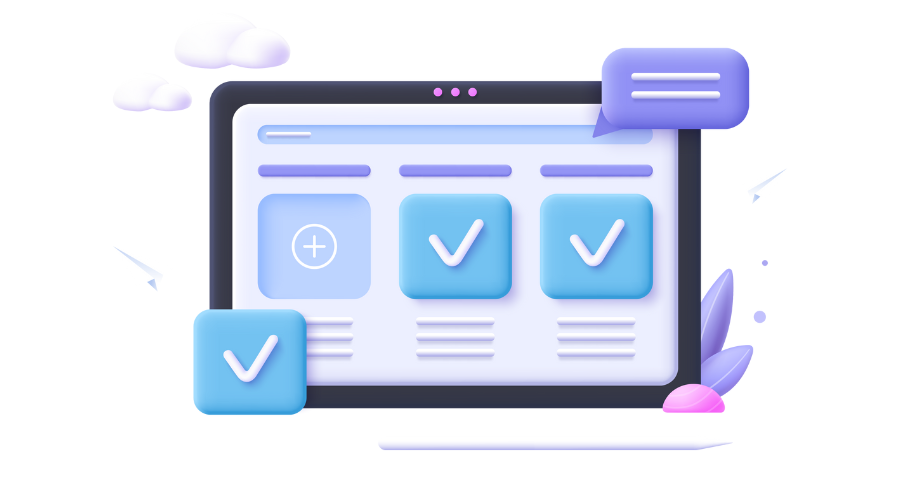We might be a little way off having a robot colleague sitting at the next desk, but artificial intelligence (AI) is already impacting the workplace in many different ways. Generative AI and robotic processing and automation make it easier than ever to incorporate new ways of working into how projects are led.
In this article, we’ll talk briefly about the impacts of AI in the workplace generally and then specifically about how it is changing the way projects are managed. Finally, we’ll talk about how it is changing the role of the project manager and what you need to watch out for to stay current as an organization and as a professional.

Source: TBRC
What are the impacts of AI on the workplace?
You’ve probably seen how AI is a gamechanger for projectized businesses. It can remove routine and repetitive tasks through automation and intelligent workflows, create meeting minutes, transcripts and summaries and AI assistants can even book your meetings.
The role of AI at work has been and continues to be transformative. And many projects will be run using the power of AI to deliver efficiencies in the years to come.
How is AI impacting how projects are managed?
As well as the reduction in administrative tasks, AI-powered workflows impact how projects are managed. Here are some examples of how AI tools are changing the way we deliver projects.
1. Automated task schedule
AI tools can automate the bulk of scheduling for you. Simply input the details of the project and let the tools create a high-level schedule for you. You’ll have to sense-check and review the output, but intelligent analysis of past projects can pull out common and relevant tasks to give you a headstart.
Take advantage of past data sets and ‘most likely’ tasks to build a schedule in virtually no time. Then work with the team to refine and validate it. There’s a common theme of AI doing some of the heavy lifting and initial drafts for project teams to review and refine, and that’s a really smart way of making the best use of the tools.
2. Data mining for risks
AI tools can mine your existing data from past projects to highlight potential pitfalls for the current project. For example, they can compare the risks from past projects with the demographics and characteristics of a new project to see which risks are likely to apply to the current work.
This is a huge time saver and as long as you spend a little time reviewing the output and checking for gaps, you’ll have your risk log populated quickly. It will also help avoid potential problems because you’ll be able to mitigate risks that other projects didn’t necessarily see coming until much later through the lifecycle.
3. Interrogating data
We’ve already talked about interrogating data related to past projects for specific purposes, but AI assistants can go much further than that. For example, they can sift through data sets and understand the masses of data that are created in projects across an enterprise, allowing us to surface insights more easily. Whether you want to categorize data or simply use natural language search to identify relevant documents or emails from past projects, it’s all easier with the power of AI.
Create dashboards for a PMO, portfolio, program or project to reflect the vast amounts of data being captured in the tools. Then mine the database of historical information to challenge estimates, learn from lessons and more.
Source: KbvResearch
How does AI Impact the way managers lead projects?
From a project management methodology or process perspective, it doesn’t matter whether you use agile or traditional methods: AI is already changing the way we deliver the work. However, in addition to the tools providing intelligent support for processes and workflows, the role of the project manager is changing too. Here are 3 ways that the role is changing.
1. Continuous learning
Did project managers need to know about AI five years ago? Not really. While advances in tech are always something that smart project managers have followed and tried to keep up to date with, the tools simply weren’t widely enough available for it to be a real requirement for a project leader.
Today, there is the requirement for project managers to make better use of their tools for productivity, including learning about generative AI and the AI features built into their work management software.
You’re expected to know how to make the most of the tools that you’ve got, so check out all the features available to you and make sure you know how to leverage them.
2. Prompt engineering
Generative AI has created a new skill set: prompt engineering. This means crafting a prompt for AI tools that gives you back the output you need. It means structuring sentences and instructions so tools like ChatGPT or KAIron know what is being asked and can return the most helpful results.
Today, there’s a requirement for project managers to be technically competent and ‘prompt engineers’: people who can use AI tools in a smart way to get the best out of them.
3. Enhanced soft skills
AI is helping in many areas of project management, and transforming the way that work gets done. However, there are some areas where AI is not (and might not ever be) able to replace human interactions. For example, conflict resolution or negotiation tend to work better when real humans are involved.
Therefore there’s a need for project managers to focus on building a range of advanced soft skills to fill the gaps that AI cannot deliver. Many of the project managers we speak to feel this is a good career focus to have for the coming years, to ensure they stay relevant and useful within their organizations and can show complementary skills that work well alongside advancing tech.
Given the ease of implementing AI-powered chatbots, your robot colleague might not have a physical presence in the office, but they can exist within your tools! How will you take advantage of all the AI options to streamline the way you lead projects?









